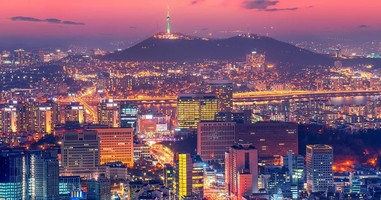
Blogs
ECONOMIC FREEDOMS AND REFORMS
October 5, 2020


Kuanysh Zhaikov
partner
Continuing to the previous post about the meeting in the Senate, my thoughts on reforms
https : // www.facebook.com / kuanysh.zhaikov / posts / 4476965912344788
It doesn't take a lot of reform to move forward. The Pareto rule works hard - there are 20% of reforms that will provide 80% of success. Everything else is secondary.
In my understanding, the most important thing now is economic liberalization. If this raises doubts, I can describe separately why.
What does it consist of?
There is such an Index of Economic Freedom from Heritage . We proudly occupy the 39th place in it, and I have already heard arguments that it might not be about economic freedoms then?
The devil is in the details. There are 4 blocks of economic freedoms and they supposedly have identical significance. In fact, it is completely different.
***
The first and the easiest one is the SIZE OF THE STATE. The "lightest" reforms. This is a low tax burden thanks to the National Fund . But now, after the fall in oil prices and the growth of social services, this "freedom" has begun to be encroached upon.
The recommendation for the state is to maintain the status quo.
***
Second, REGULATORY EFFICIENCY. We were free on the labor market, but now they are trying to regulate it. We were free to do business, but then quarantine arose.
Average freedom in our market pricing. The state distorts prices due to excessive regulation and a multitude of subsidies, implicit and explicit, direct and indirect. Irrational consumption, low-quality goods and services, and inflation are the reasons.
The recommendation for the government is very simple - not to interfere with healthy competition and eliminate regulation and subsidies.
***
The third most difficult, OPEN MARKETS.
We are not free in investment and finance. Outside competition is limited, especially in the banking sector. The land is inaccessible. Foreign investors are starting to leave for various reasons. The National Bank complains that the government distorts the financial markets through Baiterek and the state. programs.
These reforms are "more difficult", because here the interests not of the broad masses begin, but of specific institutional beneficiaries.
***
The fourth, most difficult block, RULE OF LAW. Kazakhstan is borderline free in the efficiency of courts and the protection of private property. And the worst result is " government integrity " - "integrity" or "honesty" of the state. These are corruption, non-transparency, nepotism, favoritism and so on.
***
Should I sprinkle ashes on my head? NOT AT ALL.
This is a problem not only for Kazakhstan, but for ALL developing countries. Informal institutions are stronger than formal ones. "Concepts" are stronger than official laws. Horizontal trust in society is weak, so the phenomenon of "friend or foe" flourishes.
This accompanied humanity throughout history, until the feudal relations were replaced by CAPITALISM. Until the very LEGAL STATE that we are talking about appeared.
The key is that EVERYTHING IS EQUAL BEFORE THE LAW AND THE MARKET ECONOMY. The role of the state is to ensure this equality - “level field” and uniform rules of the game.
THERE SHOULD NOT BE PRIVILEGES.
For this, only the state has a legal coercive apparatus - courts, law and order, nat. security, defense, competition protection agency
Everything else is deeply SECONDARY - doing business (Samruk-Kazyna), centralized planning of industries and regions, complex social schemes.
Citizens will take care of their own income, quality of life, and the future of their children.
The business takes care of the load itself, that's its nature.
But, only the STATE can ensure equality of all before the law. And this is his most difficult, but necessary role.
all publications











